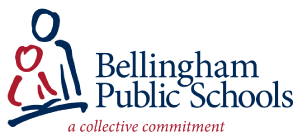Teaching һ����app Religion Objectively
Factual and objective teaching about religion, the impact of religion and religious-based ideas and ideals may be included in classroom instruction in relation to the district’s educational goals and student learning objectives. It is inherent in the teaching of history, literature, social studies, intercultural education, human relations, art and music to consider what various religions and religious movements and ideas have contributed to these fields.
Factual and objective teaching about religion is to be distinguished from the teaching or promotion of religion. Consequently, the legitimate teaching about religion shall not:
A. Utilize instructional materials to promote, encourage or disparage non-religious or religious viewpoints, groups and /or activities.
B. Involve assemblies and/or programs that promote, encourage or disparage religion or non-religion.
C. Take the form of religious instruction, worship, exercise or persuasion.
D. Attack or promulgate religion, or the absence of religion, or any particular belief system.
E. Question the religious belief, or absence of religious belief of any student; or
F. Require a student to declare a religious preference or lack of one.
The teaching about religion shall be done with sensitivity to the feelings and beliefs of all students. The teaching about religion should be consistent with the district’s educational program and with student learning objectives.
Display or decoration pertaining to religion or religious symbols or holidays should relate to instruction that is based solely upon the objective study of that subject. No public-school funds, property or facilities shall be used for a decorative display of religious symbols. This does not prohibit instructional/curriculum-related displays prepared by students. This procedure shall not infringe upon the rights of students to wear religious symbols in a manner which is not materially and substantially disruptive to the educational process.
Music
Musical selections should be chosen on the basis of their particular musical, historical and educational value and be presented in concert with a balanced representation of musical works, whether sacred or secular, with consideration of the ability level and maturity of students involved. Musical pieces should be selected and performed as works of art, not as acts of veneration. No concert should appear to be a celebration of a religious holiday. Program notes or oral narration may be provided. These notes should establish an objective context for the performance by giving such information as historical data, identification of the particular group for which the number has significance and technical characteristics worthy of note.
The following guidelines are given for music groups/classes in performance.
All performances/concerts sponsored by the school and/or conductor as part of the school program, should follow these guidelines.
A. No more than 40 percent of the overall selections, whether they be sacred or secular, may be related to an upcoming/past religious holiday.
B. The director will consider the demographics of the audience and the group involved when making decisions about outside performances. The director will be sensitive about accepting outside performances in order to avoid situations that might be inappropriate for students.
C. Rehearsal time should be balanced between all types of music throughout the school year. No music class/ensemble should spend the majority of rehearsal time for the semester/trimester on music related to a religious holiday.
Students and/or parents are responsible to request alternative assignments when a sacred selection is first introduced if they deem that it would be inappropriate for them to rehearse and perform.
If there is a concern about music selections chosen for practice and/or performance, the concerned individual should work with the building principal and if not resolved, the deputy superintendent.
Guidelines for Holiday Observances
The discussion and/or recognition of religious holidays in an objective manner is appropriate in a school provided that it is consistent with the instructional program.
School programs specifically relating to religious holidays shall not be, nor have the effect of being, a religious celebration. The atmosphere of a religious ceremony or celebration shall be avoided. Any program, which might reasonably be interpreted as religious indoctrination, shall be avoided.
The right of parents/guardians to determine when their children may decline to participate in holiday programs shall not be limited by school authorities. The right of parents/guardians to determine when their children should be absent from school because of religious observances shall not be limited by school authorities. Verification of absences in observance of a religious holiday should be provided in writing to school authorities as soon as possible after the absence.
A student shall not be penalized or deprived of makeup opportunities for such absences. School personnel shall take into account the possible effects of religious holidays on school attendance when planning school calendars. When possible, examinations and important school activities will not be scheduled on such holidays.
